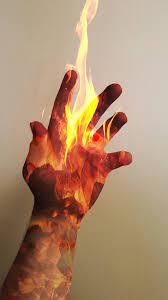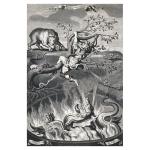Today, the 7th of February, in 1497, caught up in a madness of regret and purification stirred by preaching of the Dominican Friar Girolamo Savonarola, the people of Florence gathered together what they and the good friar considered temptations into sin, piled them up, and lit them as bonfires. These objects included clothing, cosmetics, mirrors, musical instruments, playing cards, and paintings. Lots of art. And lots and lots of books…
It was called the falò delle vanità, the “Bonfire of the Vanities.”
As it happens such things had occurred before Savonarola. And since, as well. As to the before, the friar himself started such fires as regular events two years before the whole city got involved. For a moment Savonarola was functional dictator of Florence. And, then, as happens about fifteen months later, the friar was himself burned at the stake.
I try to note this event. Not so much as an expression of the madness of crowds, although there is that. But more about the vagaries of our human hearts.
In my circles both spiritual and political I hear much about the how the Protestant movement centered the individual in ways that did not exist before. There are truths in that observation. But, it can be taken that people didn’t think of themselves so much before the Protestant thing. From my circles this is often seen as a problem.
Of course there is good and ill in centering the individual.
But what these commentators seem to miss is that whatever else was involved the concerns of individuals are always about individuals, and those closest to them. In the centuries of Christendom, where there was no light between church and state, what drove people beyond survival in this world, was an abiding fear of hell. And it was a personal fear. People with money tried to buy their way into heaven. Everyone did what they could within the confines of surviving in a pretty rough world, to make sure their eternal fate, and few doubted that there was an eternal fate, was paradise not perdition. And, as it had become normative for a while, cutting short the inevitable purgation that would be necessary to finally gain entrance into heaven.
A famous aspect of the Reformation turned exactly on the question of purchasing shortcuts out of that period of purgation. And sometimes as a get out of hell card.
Protestants streamlined the process. But it was still about heaven and hell. Hell being a bigger drive than heaven, it often seems. But in every case it turns out to be very, very personal.
So, I find myself thinking of our humanity. Our centering of ourselves. And what all it might mean. In our human endeavors it seems we commonly sense some sort of fair, some kind of harmony. And we, for the most part, want to cut ourselves just a little better than fair. Out of that society.
But then we notice it. And. Well.
falò delle vanità
Orgies of regret.
Until we take it all up again…
We have a hard time finding a middle way through. Usually its excesses of one sort or another. Bouncing from one wall to another. It even suggests that maybe, just possibly the true middle way is not about avoiding the mess of our lives. But knowing they will all pass. Each thing.
It’s interesting we don’t seem to have language for this kind of middle way. Often I speak of holding with open hands. A bad metaphor. It’s about holding while at the same time knowing at that moment of passion it will pass.
Then strange and mysterious things happen. It’s where that fire, well, it becomes us. There is a Japanese saying, gyogaku funi, which means “practice and study are not two. Something like that.
There’s a story from the Desert Fathers and Mothers that feels especially apt in the moment.
Abba Lot went to Abba Joseph. He told him he had found the rule, a simple thing. He prayed, he fasted, he dove into the great silences. The authentic way into the deep, seeking the balance between austerities and licentiousness. A true middle way.
“What more can I do?” he asked.
Abba Joseph stretched out his hands to heaven. And he said, “why not become fire?”
And the fingers on his hands became ten flaming lamps.
I think of that story. In the collections of these desert parents there actually aren’t a lot of miracles. Oh, demons come and go. And the odd angel. But, for the most part, we’re left to fend for ourselves.
But, really, really, there is one more step.
It’s kin to this story. It’s kin to the rich young man who went to Jesus and also said he kept the commandments, but felt some lack. And, Jesus replied, sell all you have, give it to the poor, and come, follow me.
As sort of a commentary on the commentary, I recently learned of the Catholic saint Mary Magdalene de’ Pazzi, “who spoke of the contemplative soul becoming a flame inseparable from union with the divine flame.”
Left only with stories. Left only with a handful of pointers. Here we are.
Here’s a secret. As intimate as our lives. So. Just for you.
A middle way. Consumed by fire. And yet free. Holding without clinging. Living with the flames. Free. Dying with the flames. Free.
It’s in your hands…














